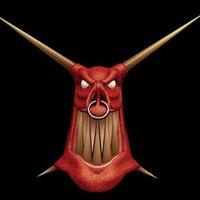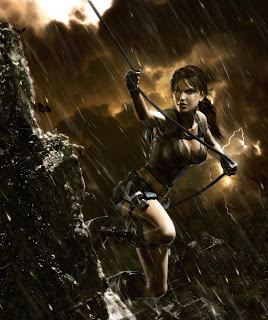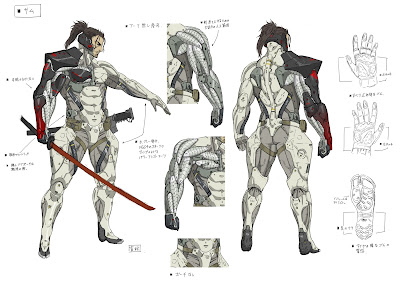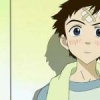Hello there! I just recently wrote an article describing the basics of the Concept Artist job. Several people praised it for being very useful, so I thought I can just repaste it here, maybe some more people will be able to benefit from it. If it breaks some kind of rules or is in a wrong section of the forums, I apologise. Here goes:
Job of a concept artist seems pretty self-explanatory - it is a person that draws the stuff that then gets used in the game. Since gaming magazines and gaming sites often show these concept arts, people seem to have a pretty good idea what skillset is needed to land this kind of job and what the job itself is all about. Frankly speaking, there isn't that much mystery to it, although there might be some elements that might surprise some of you. They surely surprised me.
What is a Concept Art?
Concept arts are basically drawings or paintings that then get transformed into 2D or 3D objects used in the game. Nowadays, 2D is a relic in AAA industry, but it is still being used in indie and mobile games.
Concept arts are often confused with illustrations. Origin of this confusion is very simple. When you google for "concept arts" you get flooded with nice, detailed promo art illustrations. These are not concept arts. These are pictures produced for marketing purposes, to draw attention of investors or customers and were never actually used as a reference for assets that are in the game. In many cases, they were painted basing on the 3D assets, near the end of game production.
The purpose of a concept art is to focus on the aspects that will then help produce game assets. Concept arts may show a character, environment, architecture details, props, weapons, armors, clothes, general mood, colors - pretty much anything, but they always focus on one element, ignoring the rest. If it is character, the elements of clothing and anatomy will be well-defined, but there won't be any background. Architecture concepts will bring out pieces of walls, finishings of roofs, etc. but not characters running on the walls. For general mood, the concept will not go into details, it will be a mostly blurry image that shows colors, lights and general placement of environment elements.
Wouldn't an illustration be able to provide all these elements? Sure, but in most cases it would cause problems, like:
- composition of the illustration would make it hard to catch the proportions
- some elements would be underdefined or not visible
- some elements would be too dark to see and/or the colors would be impossible to read because of the lighting used.
- making an illustration takes a lot of time - instead of finishing one illustration, the artist could make at least 5 drawings that actually show what needs to be shown.
Look at the Tomb Raider art above. It is really cool and would probably make a good mood concept, but a mood concept wouldn't need a character in the center. Especially one that takes forever to draw. It couldn't be an environment concept, because it only shows a piece of rock and a tiny building in the background. It mostly shows a character, but if you were to make textures for it - would this art tell you what colors you need to use? If you were to model it - would it be easy to get the proportions right, when the character is in a custom pose and perspective? Now look below at a true concept art from Metal Gear Rising and how it deals with showing the character. Based on this, a 3D artist can actually do a model for the game, and that's the goal of a good concept art.
What does a Concept Artist do?
Imagine the Art Director comes to you and tells you to draw a pink panther. But not just any pink panther. One that is cuddly, commercially attractive, with realistic proportions and looks nothing like THE Pink Panther. Then the Game Designer comes to you and tells you that gameplaywise, this panther needs to walk on only 3 legs, because in 4th paw it will be wielding a bazooka. And then you learn that all the enemies in the game will be pink panthers and all need to follow the same guidelines and all have to be different and easily distinguishable. Not so easy, huh?But that's pretty much what the job is mostly about.
The harsh truth is concept artists rarely have much to say about the game's art direction. They mostly draw what they are told to draw, their creativity gets cornered and it's working more in the area of "what kind of leg should I draw" rather than "should this characters have legs or not?" Don't fret though, the guy that's giving you directions most probably started just like you. There's a light at the end of this tunnel and a lot of knowledge and experience on the way.
The artists often have their areas of expertise - they either draw environment or characters, sometimes they draw both. Many arts are drawn basing on references and artists do spend a considerable amount of time googling for them. There are also DTP-related tasks, like designing the game covers and overpainting the screenshots. Yes, most of the screenshots you see in the gaming press are actually corrected by artists to give them better lighting, colors and details. You may now consider yourself lied to by the whole industry. Some concept artists actually get to do some promotional arts and produce an illustration or two. Another task is feedbacking models that are being produced based on
their concepts.
What do you need to get (and keep) a job as a Concept Artist?
Simply knowing how to draw isn't enough here. Concept artist needs a tremendous amounts of creativity to be able to come up with dozens of variations of the same elements. You would also need lots of humility and patience. Not every concept gets accepted - at first, if 1 in 10 gets used, you may consider yourself lucky. You will have to learn to discard your drawings without sorrow or regret. You will have to accept your drawings being discarded without anger.
And even after your concepts get modelled and after they get to be shown in one of the game's many versions, a complete turn in the art direction may happen. The whole mexican town with The Three Amigos you have designed can be thrown away and you will be asked to draw The Three Musketeers and a few districts of Paris instead. Seriously. That happens more than you may think. If you wouldn't be able to deal with it, look for some other job.
Versatility is a great asset too. You won't be lucky enough to draw tits all the time. On the upside, there's a big chance you will be drawing great stuff anyway - ninjas, cowboys, demons, pirates, spaceships, deserted islands, medieval fortresses, toilets from Pulp Fiction and underwater cities. Games usually want to be cool, so the stuff you will be concepting needs to be cool as well.
Good news for last - you do not need an art degree. All you really need is a good portfolio. Degrees don't draw, people do. Some education in fields that get used in games may often pay off though. Studios can certainly benefit from people knowing a thing or two about anatomy, architecture, history, interior design, etc. It's kinda like my mother used to tell me: to be a journalist, don't learn journalism. You know how to write. Learn something you will be able to write about.
Many thanks to my awesome Art Director for giving me hints for this post.









